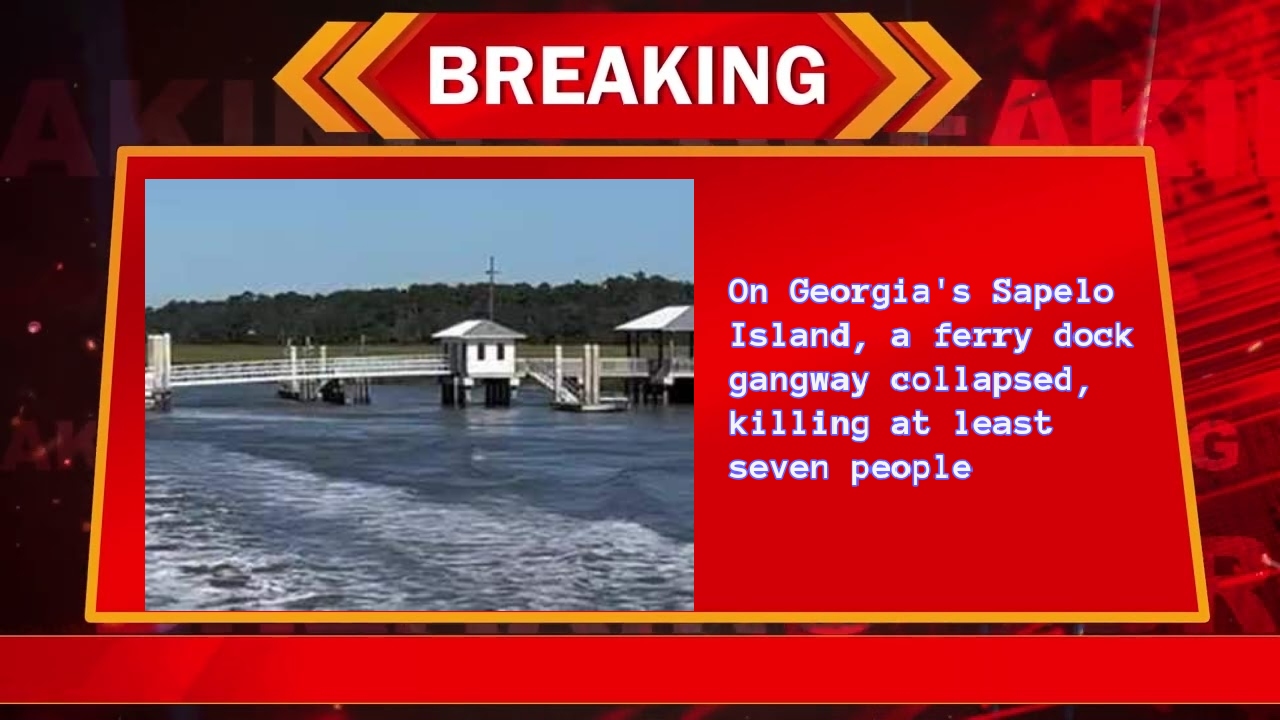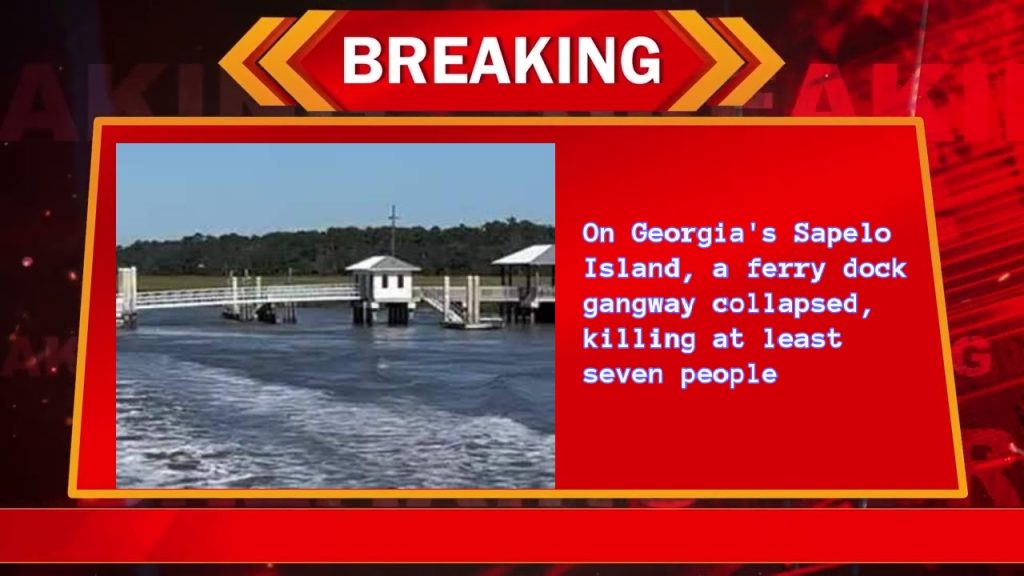SAVANNAH — On Saturday, the small Gullah-Geechee community of Black slave descendants on Georgia’s Sapelo Island held a fall celebration, and authorities claimed that at least seven people were murdered when a portion of a ferry pier collapsed.
Natural Resources spokeswoman Tyler Jones said that workers from the Georgia Department of Natural Resources, the McIntosh County Fire Department, the U.S. The Coast Guard, and others were scouring the water and that eight people were taken to hospitals, at least six of whom had significant injuries. The organization runs the ferry boats and docks that carry passengers from the island to the mainland.
According to Jones, a gangway at the dock collapsed, pushing people into the water. According to him, a group of engineers and construction experts would arrive on the scene early on Sunday to start looking into the cause of the walkway failure.
Celebration turned into devastation
According to a Department of Natural Resources release, the search was conducted using helicopters and boats equipped with side-scanning sonar. He claimed that when the gangway collapsed, there were at least 20 people on it. An outer dock where passengers board the ferry was joined to another onshore dock by the gangway.

Governor Brian Kemp of Georgia stated that the tragedy on Sapelo Island today had left him and his family “heartbroken.”According to President Joe Biden, federal representatives were prepared to offer whatever support that could be required. In a statement, Biden stated, “What ought to have been a joyful celebration of Gullah-Geechee culture and history instead turned into tragedy and devastation.”
“Jill and I pray for the wounded and the unaccounted for, and we grieve for those who have died. We also want to thank the first responders that arrived on the site. Sapelo Island is accessible by boat from the mainland and is located roughly 60 miles (97 kilometers) south of Savannah.
As islanders, relatives, and visitors gathered for Cultural Day—an annual fall festival that highlights the island’s small village of Hogg Hummock, which is home to a few dozen Black residents—the fatal collapse occurred. Former slaves from Thomas Spalding’s cotton estate established the neighborhood of dirt roads and simple houses following the Civil War.
Roger Lotson, the sole Black member of the McIntosh County Board of Commissioners, stated that the slave descendants of Hogg Hummock are very close, having been “bonded by family, bonded by history, and bonded by struggle.” The island of Sapelo is in his district.
“Everyone knows each other and everyone is family,” Lotson remarked. “They are all one in any tragedy, but this one is particularly so. They are all in agreement. The pain they all experience is the same.
The population of the hamlet has been declining
Scattered along the coast from North Carolina to Florida are small groups known as Gullah (or Geechee in Georgia) that are descended from enslaved island inhabitants in the South.
According to academics, because of their isolation from the mainland, the locals have managed to preserve a large portion of their African heritage, including their own dialect and crafts like basketry and cast-net fishing.
The National Register of Historic Places, the official list of the United States’ most valued historic sites, included Hogg Hummock, also called Hog Hammock, in 1996. However, the population of the hamlet has been declining for decades, and some families have sold their land to foreigners who have constructed holiday houses on it.
Residents and landowners in Hogg Hummock have protested and filed lawsuits over the local government’s tax hikes and zoning changes in McIntosh County.
For the past year, they have been fighting to reverse zoning amendments that increased the size of homes permitted in Hogg Hummock and were approved by county commissioners in September 2023. Residents express concern that tax rises brought on by larger homes may compel them to sell land that has been in their family for many generations.

